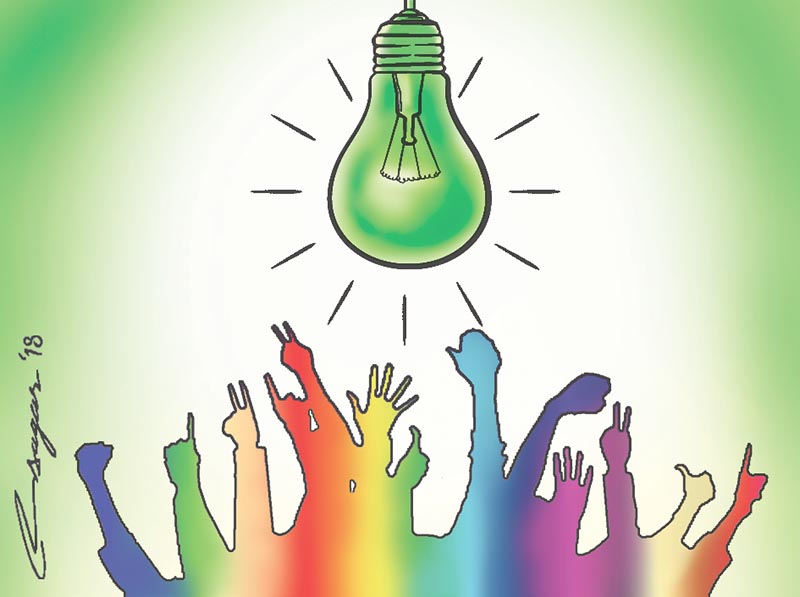Network to promote women in energy industry
Women’s skills account for a small part of job in energy sector
Kathmandu, February 20
The Women in Power Sector Professional Network in South Asia (WePOWER) was launched today in Kathmandu to promote more female practitioners in the region’s energy and power sector.
WePOWER aims to support participation of women in energy projects and institutions, and promote women in science, technology, engineering and mathematics education, said a statement issued today by the Manila-based Asian Development Bank (ADB), a partner of the WePOWER.
The first regional conference of WePOWER opened today with 150 attendees, including representatives of energy sector utilities and public agencies involved in projects, technical universities, women engineers, and students. The two-day event is co-hosted by the World Bank Group and the ADB.
“WePOWER is closely aligned with ADB’s broader long-term commitment embodied in its long-term Strategy 2030 to remove constraints that women face in finding more and better jobs,” the ADB statement quoted its Principal Social Development Specialist Francesco Tornieri as saying. “Although this applies to all sectors, we see the energy sector as one of the most challenging.”
Energy access and infrastructure development are critical elements in South Asia’s development.
An ADB series of Gender Equality Diagnostic studies on the energy industry in South Asian countries has found that women’s skills and perspectives account for a small part of job and decision-making by energy sector agencies. Gender diversity in technical and senior managerial positions is also visibly lacking.
Moreover, an assessment conducted by the World Bank in eight South Asian countries found very low female enrolment rates in engineering programmes (ranging from 0.5 per cent to 31 per cent), low female staff representation in utilities (two per cent to 17 per cent), and an even lower percentage of women in technical roles in utilities (0.5 per cent to six per cent). The studies identified the need for role models and family support, absence of basic facilities and transport, and presence of various forms of discrimination and harassment.
WePOWER envisages to become a vibrant and self-sustaining professional network backed by strategic partners that can provide technical and financial support. Its work programme will focus on five strategic areas—education, recruitment, development, retention, and policy and analysis.
WePOWER will provide capacity building support, networking, and mentorship for women engineers for career advancement, research to reform policies and practices, exposure to technology, recruiting opportunities, and access to information and conferences.






